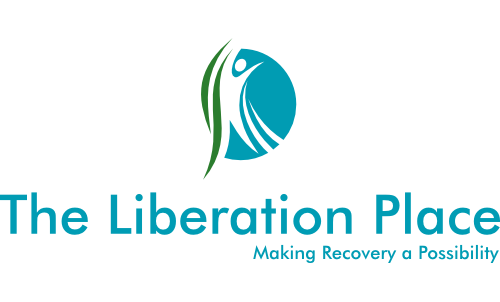The STOP Skill
Obviously, the intention of this work is to start Living the Life we Want to Live. This means living according to our true core Values and Beliefs and usually, when we first try to do this, there are many different parts of our personality that get in the way. These parts are reacting to the childhood stories that are attached to the “negative schema” that exist within our system. These are the schema that trigger an emotional state that our parts start frantically trying to cope with. And believe me, when we take on the responsibility of addressing these stories, it can be an extremely distressing thing to do. So, before we actually start exploring these negative emotional experiences, I want to introduce you to what is probably the most important skill in the Dialectical Behaviour Therapy Distress Tolerance skills training program. A skill that is known in the world of DBT as S.T.O.P.
If you are one of those people who are asking the question, why is S.T.O.P the most important skill in DBT? The answer to this question is really quite simple. Because it is the gateway into accessing every other skill we want to use when making behavioural changes. Without it, we get activated by our emotional state and go bounding into distressing situations, without the ability to take stock of what’s actually going on. We automatically react to the sense of emotional suffering that is present in our internal world, by using modes of behaviour that are simply a representation of the childhood re-enactment that we are currently playing out. We will get into why this is a little later on, but for now, all we need to know is that this is down to the schema that's active in our system. This childhood story causes parts of our personality to have the perception that we are sitting in a space that is a well-known, and extremely familiar, state of individual crisis.
“I want to introduce you to what is probably the most important skill in the Dialectical Behaviour Therapy Distress Tolerance skills training program. A skill that is known in the world of DBT as S.T.O.P.”
~Steven Morris RP.
The S.T.O.P skill helps us to refrain from acting impulsively based purely on the current emotional state we are struggling with. This overwhelming emotional state is, for most people, predominately related to some sort of fear. When we enter into this fear-based system, we are now in what is commonly known as a state of “fight or flight” and, if you have spent any time on the social media platforms connected to The Liberation Place, you will have an understanding that when in this reactive state of being, we usually, but not always, make really poor decisions which often result in us making a difficult situation way worse than it might’ve originally been.
The S.T.O.P skill supports our system by helping us to resist the urge to act on the first impulsive behaviour mode that enters into our thoughts. It does this by teaching us how to actually Stop dead in our tracks. Take a step back, and use the skills of mindful breathing, so that we can slow the situation down. From there we can Observe what’s happening both externally, and more importantly, internally, so we can describe this new internal state, which allows us to cognitively defuse from the blended part in our personality system. This opens the possibility for us to gather information about what is actually going on, rather than the story we may have inaccurately generated; and then we can Proceed from a mindful perspective, by evaluating the most effective option to take, given what it is we are trying to achieve in the situation we are in, and continuing to live according to our true core Values and Beliefs.
“This opens the possibility for us to gather information about what is actually going on, rather than the story we may have inaccurately generated.”
~Steven Morris RP.
We use the S.T.O.P skill whenever we find that our system shifts in a direction that takes us away from our own specific emotional base line. Practicing mindfulness builds awareness for this emotional starting point. It provides us with the ability to spot the early warnings that we are blending with an emotionally reactive part, because when we are blended with these parts, we usually find ourselves acting impulsively without the ability to think things through. When we have this impulsive child reaction, we do not have time to use the skills a healthy adult might use to get ourselves into a safe protected place. Without the healthy adult there is no state of wise mind, and without the state of Wise Mind there is no sense of Self energy in our system, and if you have learned anything about the multiplistic personality at all, you will know this is not a good spot for us to be in.
In order to get ourselves out of these difficult and sometimes scary situations, the first thing we need to develop is our ability to stop these impulsive child reactions. This is the intended purpose of the S.T.O.P skill. This essential piece of skills-based education is taken straight out of the Dialectical Behaviour Therapy skills training manual, and as with many of the skills in DBT, the use of mnemonics is an important thing to get your head around. Each letter of the word has a very specific meaning. It provides us with reminders for the steps we need to take, that line up with what it is that we actually need to do, when using the skill effectively. The S.T.O.P skill consists of the following sequence of steps: Stop, Take a step back and BREATHE, Observe what’s happening, and then Proceed mindfully.
I am sure, if you really take the time to think about it, you have probably experienced many times in your life when taking a step back this way has led to an effective outcome in what seemed like difficult situations. If you spend some time discussing your past experiences of this with the people in your support network, they will probably give you examples of their own too. The evidence for the effectiveness of this skill is all over the place, its just learning how to use it that’s the problem we usually face. When it comes to implementation of the S.T.O.P skill, it takes practice, practice, practice, and when you think you’ve practiced enough, practice some more.
“The S.T.O.P skill consists of the following sequence of steps: Stop, Take a step back and BREATHE, Observe what’s happening, and then Proceed mindfully.”
~Steven Morris RP.
The problem is, if you wait until you really need to use the S.T.O.P skill in order to practice it, you won’t be able to access it, because it’s not engrained in your behavioural responses as a habitual thing to do. This is a bit of a conundrum with many of the behavioural changes we are trying to create, so we have to develop ways to rehearse the use of these new skills during times when we don’t need them, so they will be there when we do. I do this by setting reminders in my phone to check in with myself multiple times in a day. Then, when the alarm goes off, I simply Stop, Take a deep breath, and ask myself the following questions:
What am I feeling right now?
What am I thinking right now?
What are my physical sensations right now?
Is there an urge for me to do something right now?
If I have the time, I document this by putting pen to paper. In the PDF attached to this page there is a short worksheet that highlights these questions for use when the alarms we have set go off to remind us to practice this skill. I highly recommend setting these alarms in your personal phone at random times throughout the day, right now, so you don’t forget to do it later. Practicing this every day, will lead to you beginning to recognize your own emotional base line. This in turn will help you notice when things begin to shift, and the earlier in the process you can spot this the better the results of using this skill will be.
Download STOP Skill Worksheet





